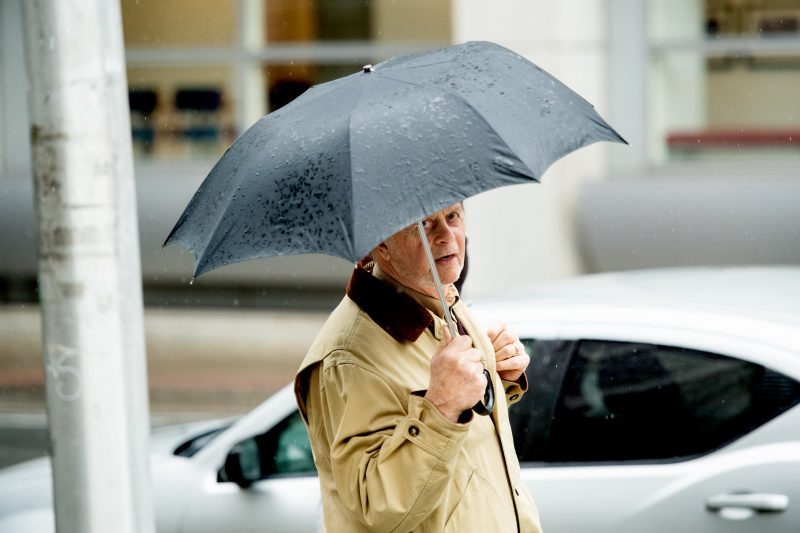Jury begins deliberations in Roundup trial phase 2
Edwin Hardeman was diagnosed with non-Hodgkin’s lymphoma after using weedkiller Roundup for 25 years (NOAH BERGER)
San Francisco (AFP) – “Monsanto knew” its weedkiller Roundup was carcinogenic yet sold it anyway, the lawyer for an American retiree said on the last day of a trial to determine the agriculture giant’s culpability for his cancer.
The company’s attorney meanwhile denied the allegations and accused Monsanto’s critics of concocting a conspiracy, as arguments drew to a close and the jury began its deliberations midday on Tuesday.
The same San Francisco jury previously found that a quarter century exposure to Roundup, whose principal ingredient is controversial chemical glyphosate, was a “substantial factor” in giving 70-year-old Edwin Hardeman non-Hodgkin’s lymphoma.
In phase two of the trial, they must determine whether Monsanto is liable and if so, assess damages.
“This company for the last 40 years manipulated science, manipulated public opinion,” Hardeman’s lawyer Jennifer Moore said.
Despite numerous studies, “they kept selling Roundup and making money off it because that’s the bottom line for Monsanto,” she added of the company, which was bought last year by Germany’s Bayer.
“Nothing has stopped this company… your job is to say ‘No more, it stops today,'” she urged the jurors.
The charges were denied by Monsanto’s lawyer Brian Stekloff, who said of Hardeman’s team: “They’re asking to believe that those employees at Monsanto wake up in the morning eat breakfast with their family, drive to Monsanto in St Louis every day and say, ‘Guess what, we’re going to go into a conspiracy to cause cancer!'”
He insisted Monsanto had “acted reasonably, based on the science” and performed extensive testing over 40 years on Roundup.
Stekloff denied Monsanto had ignored, manipulated or hidden studies that countered its findings, as had been alleged over the course of the trial.
And he underscored that between 1970 and 2012, the years in which Hardeman used the weedkiller, “no regulatory agencies, no health organizations” said Roundup caused cancer.
The International Agency for Research on Cancer, an agency of the World Health Organization (WHO), classified glyphosate as a “probable carcinogen” in 2015.
But other major agencies like the European Food Safety Authority (EFSA), the European Chemicals Agency (ECHA) or the US Environmental Protection Agency (EPA) have not followed suit.
The stakes are high for Bayer, which bought Monsanto for $63 billion but could face giant compensation bills toward the plaintiff and also punitive damages.
Beyond this trial, Bayer faces some 11,200 similar cases in the US alone.
“This case will encourage… other potential plaintiffs and their counsel to sue,” Carl Tobias, a law professor at the University of Richmond told AFP, adding: “If Bayer loses this trial and a few more, it will need to seriously consider settlement.”
In August, Monsanto lost a case to a school groundskeeper suffering from terminal non-Hodgkin’s lymphoma, who had sued the company over the glyphosate weedkillers Roundup and Ranger Pro.
Monsanto was initially ordered to pay $289 million to Johnson, before the damages were reduced to $78.5 million
Bayer has filed an appeal.
Disclaimer: This story is published from a syndicated feed. Siliconeer does not assume any liability for the above story. Validity of the above story is for 7 Days from original date of publishing. Content copyright AFP.


